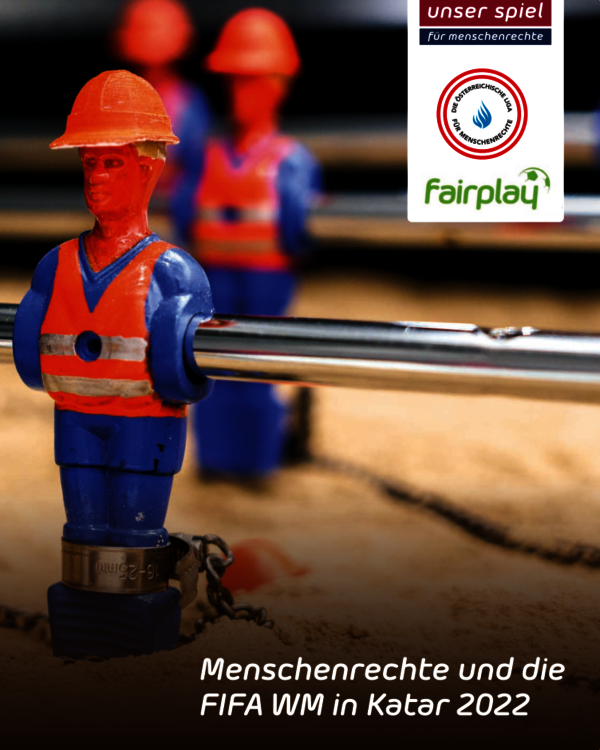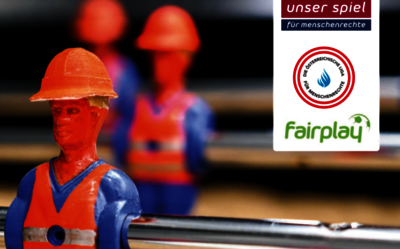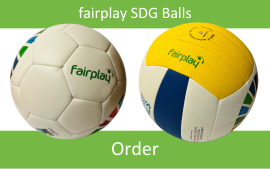Special Issue: Human Rights and the FIFA World Cup in Qatar 2022
The "Our Game for Human Rights" initiative for the FIFA World Cup in Qatar started at the beginning of 2022 and consists of several civil society organisations. It is part of a broader work area of the fairplay initiative at VIDC, which deals with the issue of human rights in the context of major sporting events - this year with a focus on Qatar. In 2010, FIFA awarded the 2022 World Cup to Qatar. The competitors at the time were the USA, South Korea, Japan and Australia. From the beginning, Qatar's hosting was criticised. Not only because of the plans to hold the World Cup either in winter or, if the stadiums could be air-conditioned, in summer, but above all because of the human rights situation in Qatar. In addition, there were allegations of corruption against FIFA in relation to the allocation of votes for Qatar.
Already in 2014, the initiative "Nosso Jogo", coordinated by fairplay at VIDC, together with the trade union Bau-Holz, demanded a stop to labour rights violations on the World Cup construction sites in Qatar in front of the Qatari embassy in Vienna. At that time, we laid down 1,200 construction helmets in front of the embassy, representing the construction workers who had lost their lives until then. In the meantime - according to an estimate by "The Guardian" - we would already need more than 6,500 helmets.
But it is not only the labour issues in Qatar that are problematic. Since the award, there have also been significant human rights violations in the areas of freedom of the press, freedom of expression, women's rights and LGBTQI+ rights.
When bidding for major sporting events, states often pursue the goal of presenting themselves positively to the public ("sportswashing") in order to boost their economy. Qatar already adopted this strategy some time ago: In the last 15 years, the small emirate has hosted more than 500 international sporting events; in addition, the state-owned Qatar Airways sponsors clubs like Paris St. Germain or FC Bayern Munich.
In principle, however, major sporting events have great potential to promote human rights - if targeted measures were taken. Already
The human rights risks that exist and how they can be countered must be made clear as early as the bidding stage. Furthermore, all activities surrounding the event must guarantee that human rights are not only respected but also actively protected. Accordingly, the initiative "Our Game for Human Rights" has developed a demand paper.
With this special issue we want to give an insight into the many facets and topics and at the same time hope that we can
- At the same time, we hope that, despite critical perspectives, we can provide optimistic and constructive input for future major sporting events in order to stand up together for a sport that guarantees the dignity of all and focuses on solidarity and anti-discrimination. The booklet can be found as a supplement in the new ballesterer (for subscribers) or downloaded here:
Download: Spezialheft
More information is also available at ourgame.at





